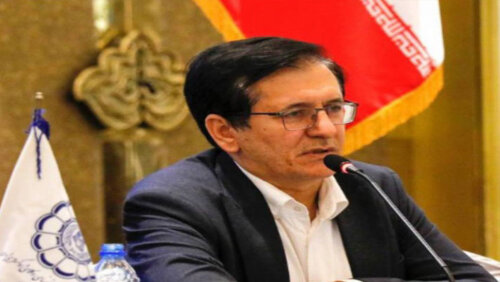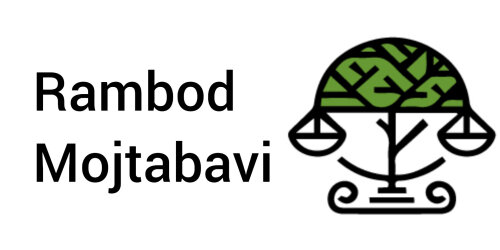Best ADR Mediation & Arbitration Lawyers in Iran
Share your needs with us, get contacted by law firms.
Free. Takes 2 min.
Or refine your search by selecting a city:
List of the best lawyers in Iran
About ADR Mediation & Arbitration Law in Iran:
Alternative Dispute Resolution (ADR) methods, including Mediation and Arbitration, are commonly used in Iran to resolve disputes outside of traditional court proceedings. Mediation involves a neutral third party facilitating negotiations between the parties to reach a mutually acceptable resolution. Arbitration, on the other hand, involves a neutral third party issuing a binding decision on the dispute after considering the evidence presented by both parties.
Why You May Need a Lawyer:
You may need a lawyer in ADR Mediation & Arbitration in Iran if you are involved in a dispute that requires a formal legal process to resolve. A lawyer can help you understand your rights, navigate the complexities of the legal system, and represent your interests effectively during mediation or arbitration proceedings.
Local Laws Overview:
In Iran, ADR Mediation & Arbitration is governed by the Iranian Civil Procedure Code, which sets out the rules and procedures for resolving disputes through mediation and arbitration. It is important to be familiar with these laws to ensure that your rights are protected and that the process is conducted fairly.
Frequently Asked Questions:
1. What is the difference between mediation and arbitration?
Mediation involves a neutral third party facilitating negotiations between the parties to reach a mutually acceptable resolution. Arbitration involves a neutral third party issuing a binding decision on the dispute after considering the evidence presented by both parties.
2. Is the decision reached through mediation legally binding?
The decision reached through mediation is not legally binding, but the parties can choose to formalize the agreement reached during mediation into a legally binding contract.
3. How long does the mediation or arbitration process typically take in Iran?
The length of the mediation or arbitration process can vary depending on the complexity of the case and the willingness of the parties to cooperate. It can range from a few weeks to several months.
4. Can I represent myself in mediation or arbitration in Iran?
While it is possible to represent yourself in mediation or arbitration, it is recommended to seek legal advice to ensure that your rights are protected and that you are able to effectively advocate for your interests.
5. Is ADR Mediation & Arbitration confidential in Iran?
Yes, ADR Mediation & Arbitration proceedings are typically confidential in Iran, which means that the discussions and negotiations that take place during the process are not disclosed to third parties.
6. Are the decisions reached through arbitration enforceable in Iran?
Yes, the decisions reached through arbitration are generally enforceable in Iran, as long as the arbitration process was conducted in accordance with the law.
7. Can I appeal the decision reached through arbitration in Iran?
In most cases, the decision reached through arbitration is final and binding, and there is limited scope for appeal. It is important to carefully consider this before entering into arbitration.
8. What types of disputes are commonly resolved through ADR Mediation & Arbitration in Iran?
ADR Mediation & Arbitration is commonly used to resolve commercial disputes, labor disputes, construction disputes, and family disputes in Iran.
9. How do I find a qualified mediator or arbitrator in Iran?
You can find qualified mediators and arbitrators through the Iranian Center for Dispute Resolution, which maintains a registry of accredited professionals in the field of ADR.
10. How much does it cost to participate in ADR Mediation & Arbitration in Iran?
The costs of ADR Mediation & Arbitration in Iran can vary depending on the complexity of the case, the fees charged by the mediator or arbitrator, and any administrative fees associated with the process. It is important to discuss the costs upfront to avoid any surprises later on.
Additional Resources:
For more information on ADR Mediation & Arbitration in Iran, you can visit the Iranian Center for Dispute Resolution's website or contact the Iranian Bar Association for assistance in finding a qualified lawyer to represent you during the process.
Next Steps:
If you are in need of legal assistance in ADR Mediation & Arbitration in Iran, it is recommended to consult with a qualified lawyer who is familiar with the local laws and procedures. They can provide you with personalized advice and representation to help you achieve a fair and equitable resolution to your dispute.
Lawzana helps you find the best lawyers and law firms in Iran through a curated and pre-screened list of qualified legal professionals. Our platform offers rankings and detailed profiles of attorneys and law firms, allowing you to compare based on practice areas, including ADR Mediation & Arbitration , experience, and client feedback.
Each profile includes a description of the firm's areas of practice, client reviews, team members and partners, year of establishment, spoken languages, office locations, contact information, social media presence, and any published articles or resources. Most firms on our platform speak English and are experienced in both local and international legal matters.
Get a quote from top-rated law firms in Iran — quickly, securely, and without unnecessary hassle.
Disclaimer:
The information provided on this page is for general informational purposes only and does not constitute legal advice. While we strive to ensure the accuracy and relevance of the content, legal information may change over time, and interpretations of the law can vary. You should always consult with a qualified legal professional for advice specific to your situation.
We disclaim all liability for actions taken or not taken based on the content of this page. If you believe any information is incorrect or outdated, please contact us, and we will review and update it where appropriate.
Browse adr mediation & arbitration law firms by city in Iran
Refine your search by selecting a city.
















